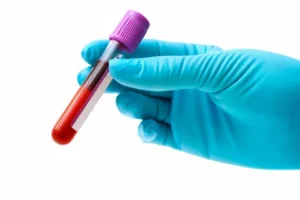Cancer has emerged as one of the leading health challenges globally, affecting millions of individuals and their families. The journey through cancer treatment can be physically and emotionally taxing, often requiring a multifaceted approach to care. While conventional treatments such as chemotherapy, radiation, and surgery are essential, many patients are turning to complementary therapies to support their healing journey. One such ancient system of medicine is Ayurveda, known for its holistic approach to health and wellness. This blog explores the healing power of Ayurveda in cancer care, focusing on its principles, therapies, and the role of Ayurvedic medicine for cancer in Mumbai.
Understanding Ayurveda
Ayurveda, which translates to “the science of life,” is a traditional healing system that originated in India over 5,000 years ago. It emphasizes the balance of the body, mind, and spirit, viewing health as a harmonious state rather than merely the absence of disease. Central to Ayurveda is the concept of the three doshas—Vata, Pitta, and Kapha—which represent different biological energies in the body. Each individual has a unique constitution, or Prakriti, determined by the balance of these doshas.
In the context of cancer, Ayurveda seeks to understand the underlying imbalances that contribute to the disease. It posits that cancer can result from a combination of genetic, environmental, and lifestyle factors that disrupt the body’s equilibrium. By addressing these imbalances, Ayurveda aims to support the body’s innate healing abilities and enhance overall well-being.
The Role of Ayurvedic Medicine in Cancer Care
- Herbal Medicine: Nature’s Pharmacy Ayurvedic medicine is rich in herbal remedies that have been used for centuries to treat various ailments, including cancer. Herbs like Ashwagandha, Turmeric, Tulsi, and Guggulu are known for their potent anti-cancer properties. For instance, curcumin, the active component in turmeric, has been extensively studied for its anti-inflammatory and antioxidant effects, which can help protect healthy cells from the damaging effects of chemotherapy.Ayurvedic practitioners often customize herbal formulations based on individual needs, the type of cancer, and the patient’s overall health. These remedies can help alleviate side effects associated with conventional treatments, such as nausea, fatigue, and pain, while also boosting the immune system.
- Diet and Nutrition: Food as Medicine Ayurveda places great emphasis on diet and nutrition, viewing food as a vital component of health and healing. An individualized dietary plan is crucial for cancer patients, as it helps restore balance and promotes healing. Ayurvedic principles advocate for consuming fresh, organic, and seasonal foods that nourish the body.Specific dietary recommendations may include:
- Anti-inflammatory foods: Foods rich in omega-3 fatty acids, such as flaxseeds and walnuts, can help reduce inflammation.
- Fresh fruits and vegetables: These are packed with antioxidants, which combat oxidative stress and support immune function.
- Whole grains: Foods like quinoa and brown rice provide essential nutrients and are easier to digest.
- Herbal teas: Infusions made from herbs like ginger and mint can soothe digestive issues and provide relief from nausea.
- Detoxification: Cleansing the Body Detoxification is a key component of Ayurvedic medicine, as it helps eliminate toxins (Ama) that may contribute to disease. Panchakarma, a specialized detoxification therapy, consists of five cleansing processes designed to purify the body and restore balance. These processes include therapeutic vomiting (Vamana), purgation (Virechana), medicated enemas (Basti), nasal therapies (Nasya), and bloodletting (Raktamokshana).While some detoxification methods may not be suitable for cancer patients undergoing active treatment, gentle cleansing diets, herbal enemas, and oil massages can be safely incorporated to support the body’s natural detoxification processes. These therapies can enhance the efficacy of conventional treatments and help mitigate side effects.
- Mind-Body Connection: Yoga and Meditation The mind-body connection is a fundamental aspect of Ayurveda. Stress and emotional turmoil can significantly impact a patient’s overall health and well-being, making it essential to address mental and emotional health during cancer treatment. Ayurvedic practices, such as yoga and meditation, promote relaxation and help patients manage stress, anxiety, and depression.Yoga is particularly beneficial for cancer patients, as it improves physical strength, flexibility, and overall fitness. Additionally, it enhances the body’s ability to cope with the physical and emotional challenges of cancer treatment. Meditation, on the other hand, helps calm the mind, reduces anxiety, and fosters a sense of inner peace.Research has shown that regular practice of yoga and meditation can improve quality of life, reduce treatment-related side effects, and enhance the immune response in cancer patients.
- Personalized Cancer Care: Tailoring Treatments One of the key strengths of Ayurveda is its personalized approach to treatment. Each individual is unique, and Ayurvedic practitioners assess factors such as the patient’s constitution, the nature of the cancer, and the overall state of health to develop customized treatment plans. This personalized approach ensures that each patient receives the most appropriate therapies to support their healing journey.For patients seeking Ayurvedic medicine for cancer in Mumbai, qualified practitioners can provide tailored treatment plans that include herbal remedies, dietary recommendations, detoxification therapies, and mind-body practices.
Integrating Ayurveda with Conventional Cancer Treatment
It is crucial to emphasize that Ayurveda is not a substitute for conventional cancer treatment but rather a complementary approach that can enhance overall care. Integrating Ayurvedic practices with conventional therapies requires careful coordination between Ayurvedic practitioners and oncologists to ensure safety and efficacy.
Patients interested in incorporating Ayurveda into their cancer treatment plan should consult with qualified practitioners who have experience in working with cancer patients. These practitioners can guide them on the appropriate therapies that complement their conventional treatment, allowing for a more holistic approach to care.
A Holistic Approach to Healing
As cancer continues to pose significant challenges to patients and healthcare providers, the importance of holistic approaches to care cannot be overstated. Ayurveda, with its emphasis on balance, harmony, and individualized treatment, offers valuable insights and therapies that can support patients throughout their healing journey.
By integrating Ayurvedic principles and practices into cancer care, patients can benefit from a comprehensive approach that addresses their physical, mental, and emotional needs. Ayurveda’s healing power can enhance the effectiveness of conventional treatments, improve quality of life, and foster a greater sense of well-being for those facing the challenges of cancer.
In Mumbai, where a growing number of practitioners specialize in Ayurvedic medicine for cancer, patients have access to a wealth of knowledge and resources to support their journey toward healing. Embracing Ayurveda as part of a holistic approach can empower patients to take control of their health and enhance their resilience in the face of cancer.




